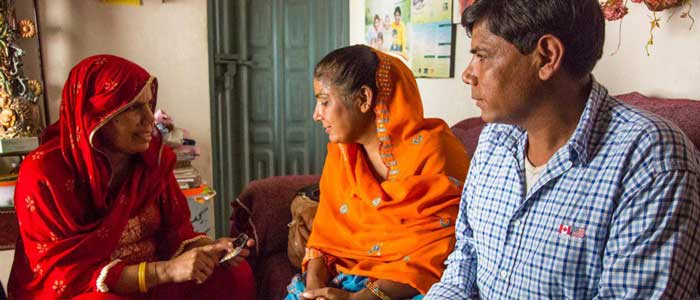Why do some people with chronic illnesses quit treatment?
Adherence to treatment is key to the well-being of those with a chronic illness. Despite knowing this, globally, many, give up on their treatment at some stage of their therapeutic journey.

Given the inevitable negative impact of non-adherence on health outcomes, and the linked added costs, this phenomenon has been subject to scientific enquiry for decades. Research attributes non-adherence to factors like the side effects of drugs, economic constraints, doubts about the treatment, co-morbidities, and health workers' attitudes towards those they are treating. Despite knowing all this, and often addressing many of these issues, public health programs struggle to keep patients on long-term treatment.
Guided by the Practice Theory of Social Action, we undertook a study to understand what shapes patients’ ability to adhere to treatment. We approached adherence as a 'practice' that people embrace, or abandon given their experience with the three elements that constitute a practice. These elements are: materialities (the material inputs required to initiate a practice), competencies (the basic knowledge and skill to perform a practice) and meaning (the symbolic significance of doing a practice). Whether a person embraces or abandons a practice, such as taking medication regularly, depends on the content, arrangement, and interaction between these elements. We showed how such an approach to inquiry allows us to better understand why some patients quit treatment.
We worked with TB Control Programme, Khyber Pakhtunkhwa, Pakistan to examine the practice of adherence amongst those with drug-resistant tuberculosis and receiving long-term treatment from dedicated clinics of the National TB Program of Pakistan. These patients were selected as they had become non-adherent despite having access to free medicines and despite receiving financial support to remain on treatment. Our analysis revealed a high focus on ensuring that ‘materialities’ such as good supplies of DR-TB medicines, robust processes for collecting and processing blood and sputum samples, were in place.
What we found lacking was the emphasis on building patients' ‘competencies’ to, understand their disease, the significance of completing a full treatment course, and building their confidence in the legitimacy of the broader program. As a result, patients lost trust (the positive 'meaning') they once had in the treatment modality, and in the TB program itself, ultimately leading to them quitting treatment.
Our results show that enabling patients to adhere to treatment is not merely a function of health services that are available, accessible, and well-functioning in the traditional material and processual sense. It is equally essential to make chronic disease services responsive to patients' legitimate expectations. Such a responsive health system is where patients are listened to empathetically, their concerns are heard and doubts are clarified, and where they are actively involved in the processes concerning their health and healthcare.
Spending huge sums of money on infrastructure and procurements is only half an investment. Unless efforts are made to enhance the ‘health system’s responsiveness’ patients’ adherence to treatment would remain a far-fetched goal.
Dr Shazra Abbas is a Technical Advisor working within the Nossal Institute’s Social & Cultural Dimensions of Health Systems Unit. Her PhD project, revealed how health system level constraints were impeding the TB program’s performance.